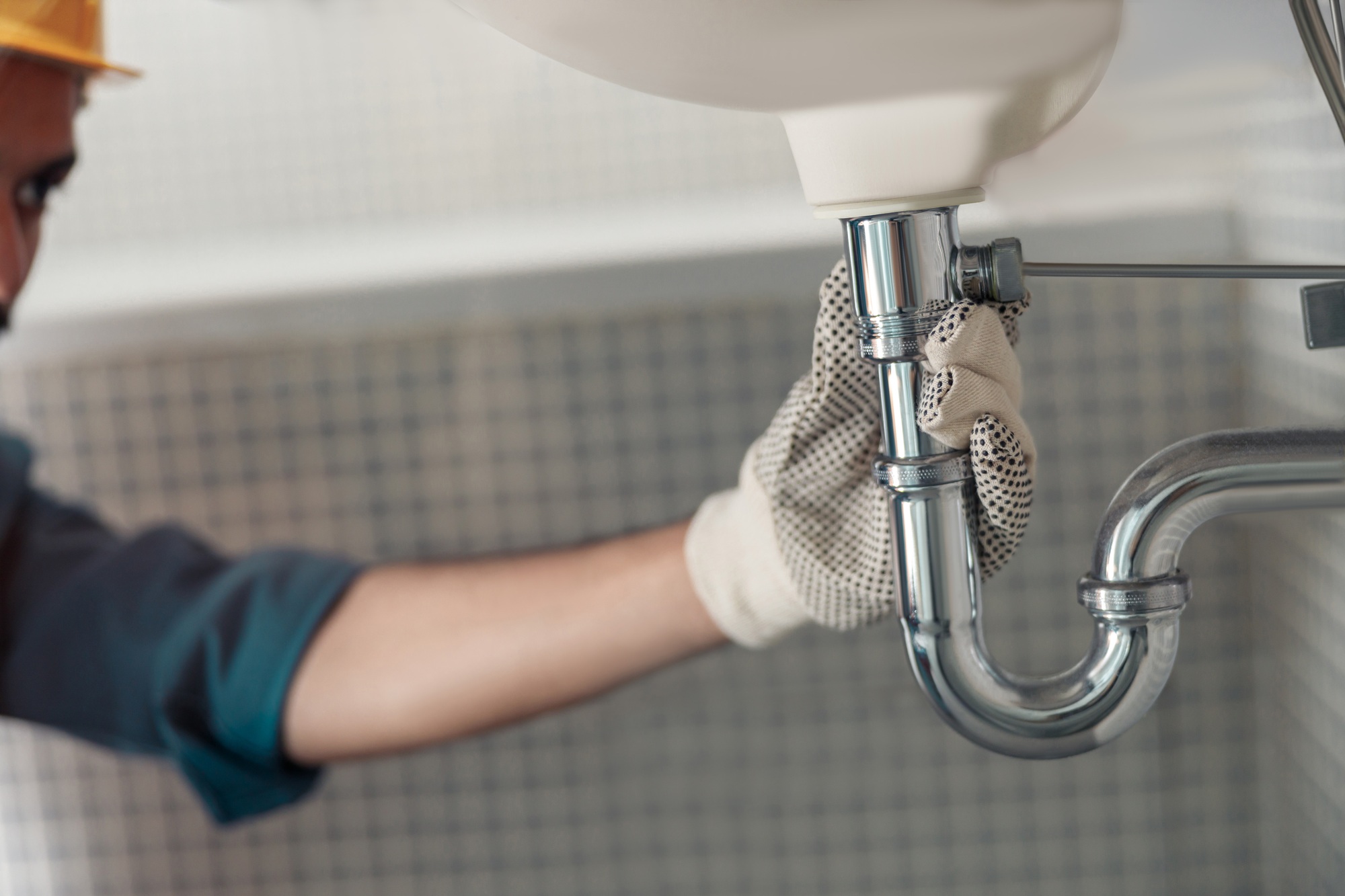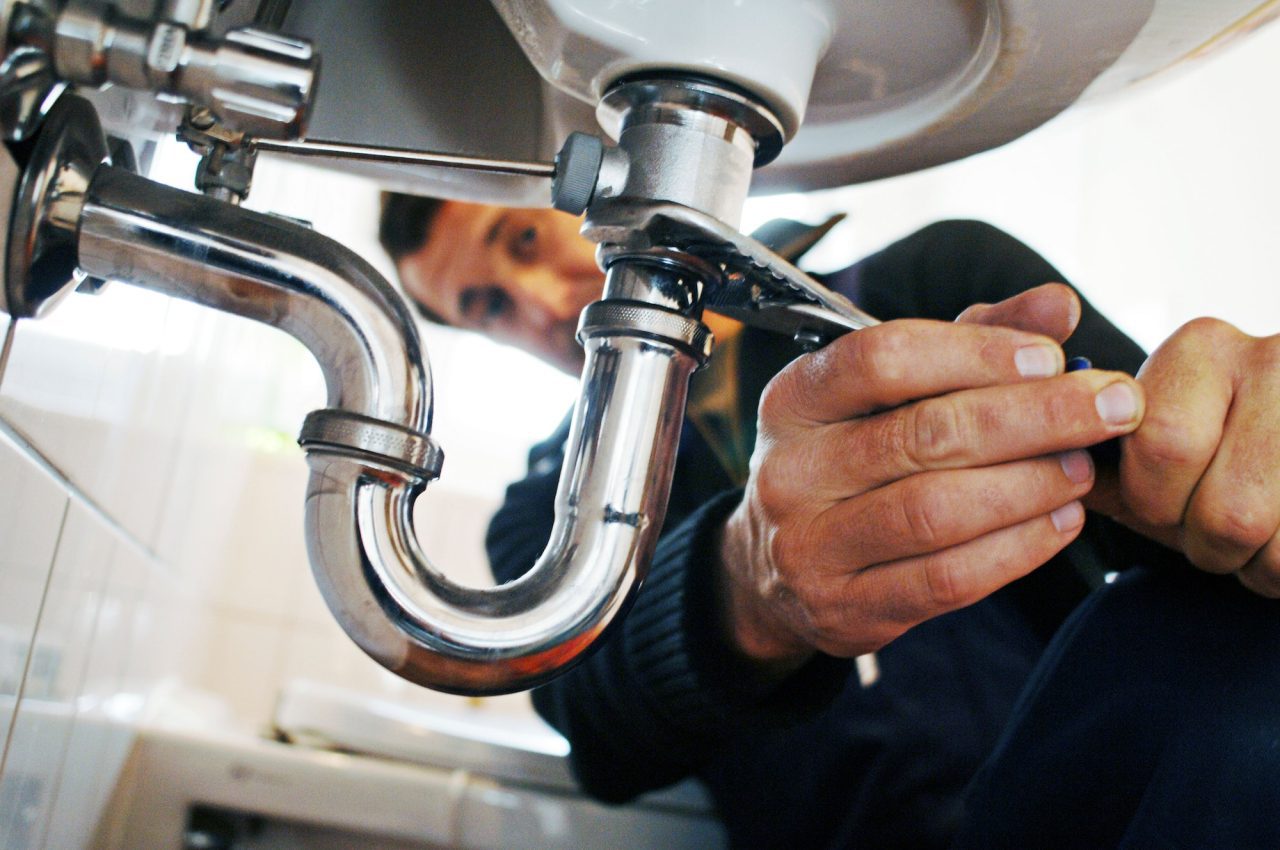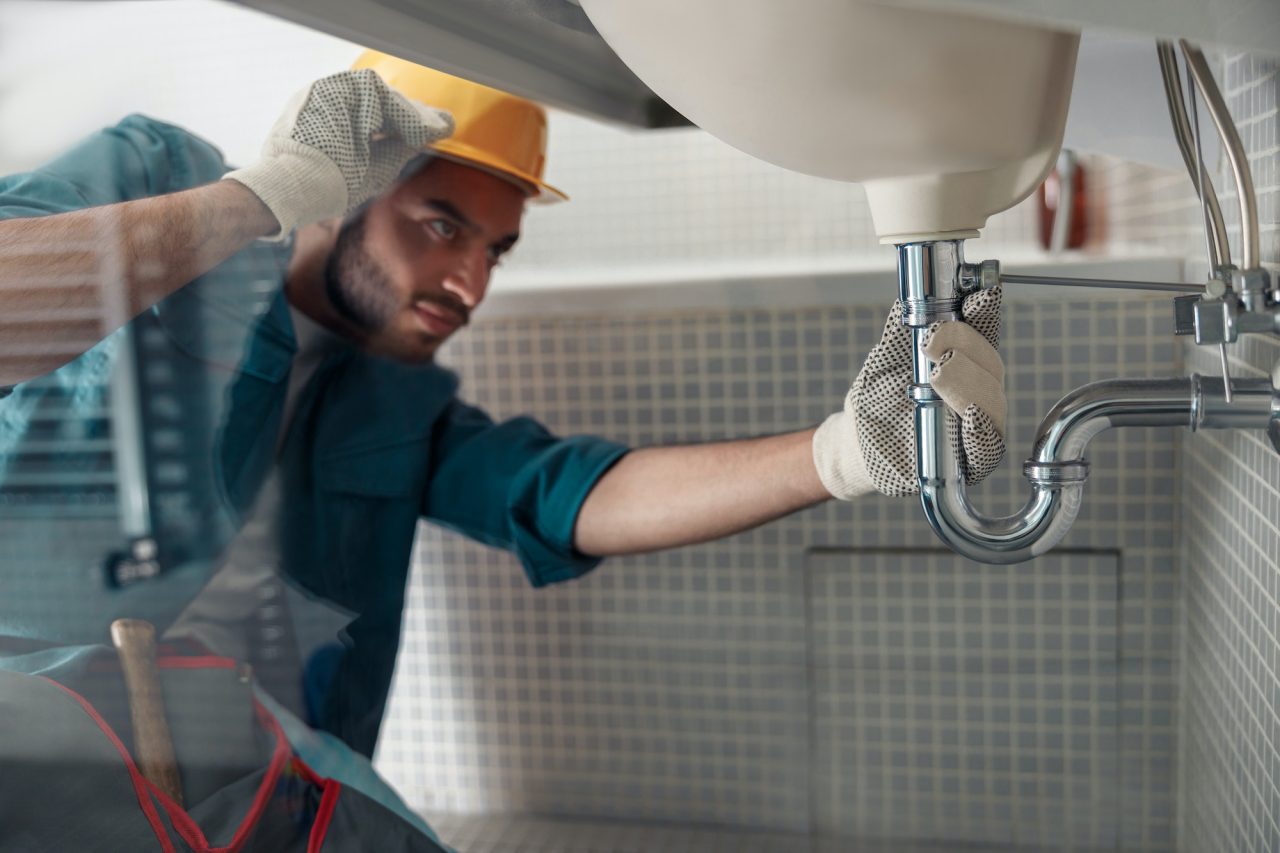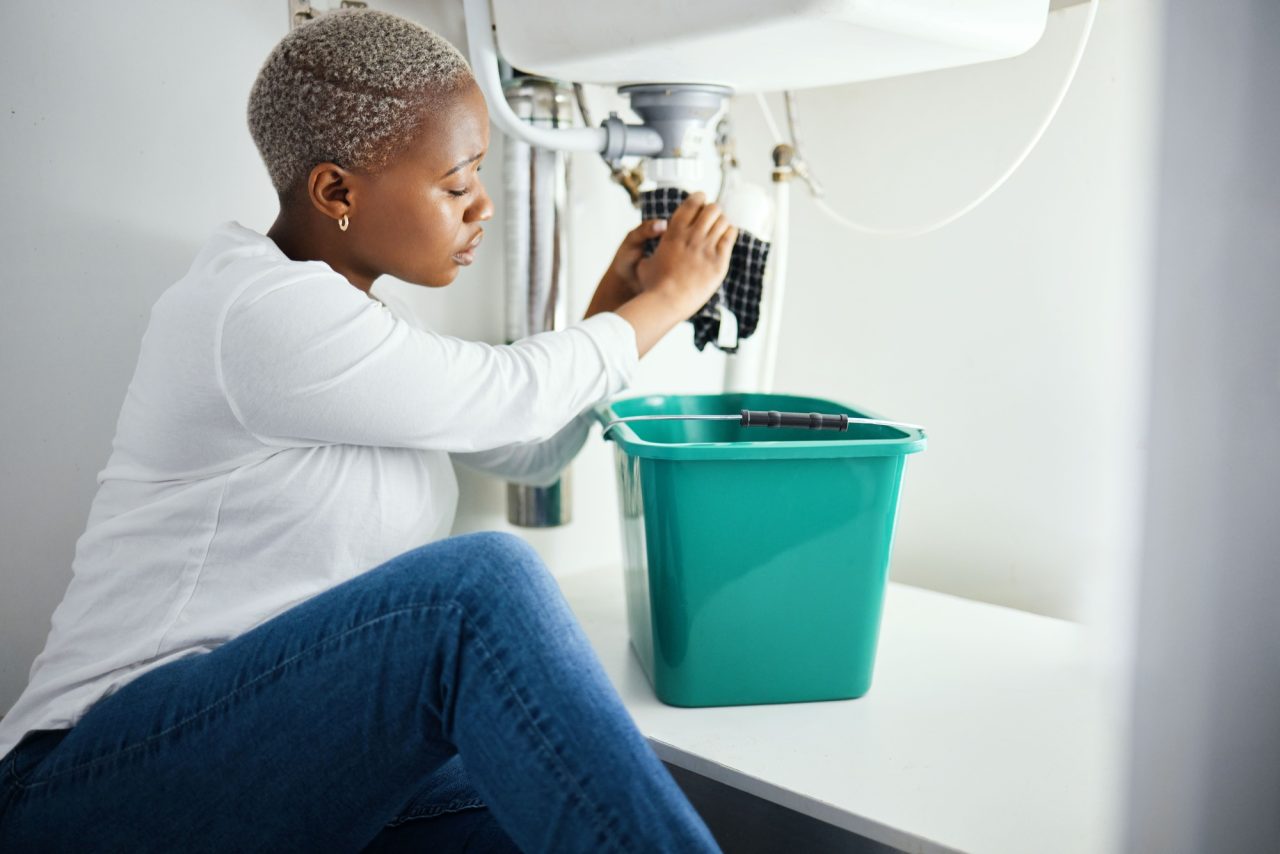Food scraps, grease, hair and soap build-up are the most common culprits of clogged drains in Santa Rosa homes. Ancient pipes with mineral build up can impede the flow of water. Tree roots cause clogging from time to time, as they find small cracks and grow inside pipes – blocking the drain. To prevent clogs, most plumbers recommend drain screens, weekly hot water cleaning of drains and to never pour grease or oils down the sink. Others swan enzyme cleaners down to dissolve the organic debris before it clogs. Routine inspection by a plumber can detect early warnings. The bulk of this blog post will illustrate specific actions and advice for maintaining drains free and functioning smoothly year round.
Key Takeaways
- While regular monitoring and cleaning of drains can go a long way in reducing buildup from soap, hair, grease and the occasional chicken bone.
- By being mindful of what you are putting down drains, and installing drain screens or strainers, you can keep debris and inappropriate items out of your plumbing.
- Preventative measures, like regularly flushing drains with hot water, applying natural cleaning agents, and being mindful of what you put down the drain, promote sustained drain wellness and reduce mineral or grease deposits.
- Checking pipes for corrosion, damage or root intrusion and repairing as needed is set to keep drains flowing smoothly, particularly in older homes or regions with shifting soil.
- Knowing when to reach for tools like plungers or drain snakes, and when DIY methods are insufficient, prevents accidental pipe damage and ensures timely interventions.
- By opting for environmentally safe drain care and engaging professional services for stubborn or intricate obstructions, you safeguard your home’s plumbing while minimizing environmental footprint and promoting community infrastructure well-being.
Why Santa Rosa Drains Clog
Santa Rosa drains and clogged pipes are a combination of typical plumbing issues, along with some that are very specific to the area. These problems commonly extend past inconveniences and can interfere with daily activities or even result in expensive destruction. Slow drains, foul odors and eerie gurgling toilets can all be warning signs of a much more serious issue. Knowing what causes it and how to fight it can save you from a bigger headache.
Daily Buildup
Soap scum, hair and food waste are the number one culprits of drain clogs in household sinks and bathtubs. Hair, specifically, combines with soap scum to form dense masses that obstruct water, especially in showers and bathroom sinks. Over time, these substances get accumulated, limiting the draining and generating horrible smell. Periodic cleaning can minimize this danger. Place drain covers in your showers and sinks to capture debris before it goes down the pipes, which is easier to clean up. Educating everyone who lives in a house not to run large food scraps or hair down drains is a significant preventative measure.
Kitchen Grease
Cooking grease is the single biggest offender when it comes to slow kitchen sinks. When hot grease goes down a drain, it cools and solidifies, sticking to pipe walls and capturing other detritus. This accumulation constricts water’s path, frequently leading to stubborn slow drains or clogs. Follow your cooking with a flush of hot water and it will help prevent solid grease. So, simply store used cooking oil in a container and throw it away with solid waste. Regularly scheduling professional cleanings can keep your kitchen drains clear and prevent more significant plumbing issues.
Foreign Objects
Wipes, hair ties, cotton swabs and even kids’ toys that can get lodged in drains, causing an immediate clog. These stuff don’t easily decompose and can create some serious clogs. Placing strainers over drains and routinely inspecting for accumulated debris works. It’s essential to educate kids on what can and cannot be flushed or drained as prevention. Maintaining kitchen and bathroom drains eliminates the smaller particles, before they join forces.
Pipe Damage
Pipe corrosion, leaks, and tree roots can lead to stubborn clogs. Older metal pipes in particular are vulnerable to internal corrosion, which coarsens pipe walls and ensnares debris. Tree roots can make their way into pipes through tiny cracks, take root inside, and impede the passage of water. Video inspections can expose underlying damage. Tackling these problems fast keeps serious clogs at bay and safeguards general plumbing well-being.
Mineral Deposits
Hard water, which is common in some Santa Rosa areas, deposits minerals within pipes. These minerals, over time, accumulate to reduce pipe diameter and restrict flow. Additionally, installing a water softener will lessen the mineral buildup and lengthen pipe life. Flushing pipes with vinegar or gentle cleaners aids in shaking loose deposits. Monitoring for water pressure drops can warn homeowners of initial mineral clogs.
Santa Rosa’s Hidden Drain Cloggers
Santa Rosa homes encounter very special types of drain issues. Local dirt, old pipes, and surrounding vegetation are all at fault. Clogged drains are an indication of much more than a basic nuisance — they’re a red flag that you may have underlying plumbing issues that need to be addressed.
Older Homes
A lot of the older homes in Santa Rosa still have the original pipes. These pipes, typically constructed from galvanized steel or cast iron, are prone to corrosion and debris accumulation. Corrosion constricts pipe interiors, so it doesn’t take much hair, soap scum and small objects, like cotton balls, to clog up the works. It is better to replace these with PVC or copper pipes because they drain better and reduce the long-term risk.
Annual inspections are a must with a house of this age. Plumbers are trained to detect these early warning signs — slow drainage, odor — that might otherwise go undetected. Homeowners at least know the biggest offenders—hair in bathroom drains, hygiene product buildup and old stoppers—so they can act fast. Frequent scrubbing of drain stoppers, combined with enzymatic cleaners monthly, defeat organic build-up, while sparing ancient pipes chemical abuse.
Aggressive Tree Roots
Tree roots are an underground sewer line’s worst nightmare. Trees such as willows and maples have root systems that search for water, including small fractures in pipes. Over time roots can enter these openings and create devastating blockages.
Installing root barriers is a simple method to protect plumbing from invasive roots. For residences with mature trees near the dwelling, sewer line inspections are critical. These inspections catch root invasions before they cause drainage disruption or sewage backups. Even landscaping professionals can provide guidance on tree location, so that new plantings don’t threaten plumbing.
Shifting Clay Soil
The clay-rich soil that Santa Rosa is known for is notorious for shifting with wetness, which causes the ground around your pipes and drains to move and shift. Even minor shifts can warp or fracture pipes, causing secret leaks or gradual blockages. In addition, proper grading and drainage installations around the foundation help keep soil stable.
Require regular outdoor drain checks, particularly after severe rain, to identify debris or pooling that indicates issues. A smart soil evaluation provides homeowners visibility into risk over time and smartest measures to prevent. Easy fixes such as flushing drains with hot water weekly and removing visible gunk increase system longevity.
Develop Proactive Habits
Proactive habits can really help in preventing drain clogs and keeping plumbing healthy. Defined daily habits and common workflows prevent problems before they begin, conserving everyone in the family both dollars and minutes.
Mindful Disposals
Educating the entire household on why throwing waste in the toilet is so important is the secret to clean pipes. Hygiene products, wet wipes, cotton swabs and paper towels should NEVER be flushed down the toilet or sink – they don’t decompose and can easily cause blockages. Food scraps, grease, oil and coffee grounds are prime offenders, so be sure to scrape plates into the trash or compost bin prior to washing. Establishing well-marked, convenient trash receptacles in kitchens and bathrooms can nudge people to change their habits and reduce hazardous disposals.
Others get a kick from incorporating composting into the mix. Composting that includes items like vegetable peels and eggshells can help keep your drains clear while continuing to support your green mission. We posted reminders and labels near our sinks to reinforce the message – so everyone in the house remembers what goes down the drain and what doesn’t.
Regular Flushing
Consistent flushing keeps H2O AND waste moving through pipes, helping to prevent buildup. Make a plan to flush drains with hot water at a minimum once a week, particularly following heavy use like dishwashing or laundry. Hot water aids in dissolving grease and soap scum. Once a month or so, dump a combination of baking soda and vinegar down the drain, then flush with hot water to dissolve minor buildup without using a harsh chemical! These simple measures can prevent the majority of minor blockages.
Deploy a plunger for little slowdowns to keep them moving. For kitchens equipped with a garbage disposal, run it with cold water after every use to clear stuck food and keep blades in good condition. See how quickly water drains and modify your flushing schedule accordingly for times of congestion. A yearly pro cleaning, in addition to enzyme drain maintainers, puts a buffer over it and keeps the system humming.
Strategic Screening
Mesh screens and drain covers are quick, inexpensive gadgets that prevent hair, food, and gunk from entering your pipes. Place them in sinks, showers and tubs, and clear them regularly to prevent clogs. Choose screen sizes that fit well, so as to avoid spaces where dirt can sneak through. Discuss with the whole house about screen time and why it’s important for long-term plumbing health.
For additional protection, consider mesh strainers in frequently used sinks. Keep gutters and downspouts clear often to avoid outside water and debris from backing up into house drains. Watch for leaks and changes in water pressure, which could indicate a clog or pipes in need of repair. By developing these habits, homeowners can prevent most of the typical culprits of clogged drains and maintain repair to a minimum.
When To Intervene Yourself
Drains get clogged in every home, Santa Rosa as well, and it’s important to know when and how to intervene. Knowing the early warning signs and your options—before phoning a pro—can go a long way. The following signs indicate it’s time to step in:
- Water goes down slower than normal in sinks, showers, or tubs.
- Gurgling or unusual sounds coming from pipes
- Foul odors or musty smells from drains
- Recurring clogs in the same fixture
- Water backing up or pooling around drains
Knowing basic unclogging skills is a real time saver and money saver! Not everything can or should be dealt with on your own. DIY saves on small clog, but pushing the wrong tool or method can damage pipes and lead to expensive repairs. Basic items such as plungers and drain snakes should be easily accessible. Natural cleaners and hot water are easy, efficient maintenance staples. For more complicated obstructions or if unsure, expert assistance is the most secure option.
The Plunger
A plunger is your best bet for little sink, shower and toilet clogs. Have one in the kitchen and bathroom for easy access. To optimize performance, keep the plunger clean and the rubber flexible — this forms a good seal. Apply consistent, even pressure—push down then pull up, maintaining the seal in order to create suction. Repeat, repeat, repeat. Older plungers with cracks or hardened rubber don’t work as well, so check yours often and replace if needed.
The Drain Snake
When a plunger isn’t enough, a drain snake clears tough clogs. A plain old hand-crank snake does the trick for most household drains, but be sure to feed it in gently so it doesn’t scrape or puncture the pipes. Not every homeowner is comfortable with this tool – if you’re uncertain, then call a plumber instead. Drain snakes can be rented or purchased for general maintenance, particularly if you have persistent hair and/or food build-ups. If a clog doesn’t clear or the snake meets resistance, STOP — to keep from damaging pipes.
Natural Cleaners
- Baking soda and vinegar mix
- Boiling water
- Salt and hot water
- Lemon juice
A few weeks use of these fixes drains. Educate your family about the advantages of non-toxic cleaning, particularly if you live in a kid or pet-friendly house. If water continues to drain slowly or smells persist, step up your cleaning or consult a professional.

The Environmental Cost of Clogs
Home clogs do more than just impede water flow. They leave a permanent environmental footprint in the form of backups, leaks and pollution. When plumbing clogs, untreated water gets into local waterways, killing aquatic life and poisoning soil and groundwater. The three most common clog culprits—grease, oils, and food scraps—are not only responsible for hard-to-dislodge clogs, but if left untreated, can exacerbate soil and water contamination. As homeowners pour chemical drain cleaners down their sinks, they’re adding to the environmental damage and endangering both water supplies and human health. The table below summarizes these impacts and offers preventative steps:
Environmental Impact | Example Problem | Preventative Measure |
Water pollution | Backups, overflows | Routine drain cleaning, composting food |
Soil & groundwater harm | Grease/oil blockages | Proper grease disposal, compost bins |
Aquatic ecosystem damage | Chemical drain cleaners | Use eco-friendly products, hydro jetting |
Pathogen release | Sewage overflows | Schedule professional drain service |
Resource waste | Leaks, slow drains | Monitor water use, fix leaks quickly |
Chemical Dangers
Drain cleaner is harsh and will corrode pipes, wearing down older plumbing and causing a greater chance of leaks. These chemicals can emit fumes that are harmful to humans. If you use them regularly, they leach toxins into the soil and water in a way that sticks around and negatively impacts fish. There are safer options available – enzyme-based cleaners, hot water flushes, or even baking soda and vinegar. These alternatives are unlikely to harm pipes or the environment. There are plenty of eco-friendly products out there that when used consistently can keep your drains unclogged WITHOUT polluting an entire city.
Water Waste
Clogs cause leaks and plumbing backups — all of which waste a significant amount of water. This waste is expensive in terms of utility bills and local water resources–a concern in urban and semi-urban centers around the globe. By catching problems early and maintaining clear drains, water flows efficiently which minimizes waste. Homeowners are advised to monitor water bills for sudden spikes, which frequently indicate secret leaks or stubborn clogs. Practical habits—such as not rinsing grease down the sink and utilizing compost bins—can reduce water waste.
Local Impact
Clogging the local infrastructure of such drips and drabs can flood local sewage and stormwater systems, causing overflows that endanger both public health and local waterways. Communities thrive when homeowners back up responsible disposal habits and partner with plumbers who operate with environmentally sensitive methods, like hydro jetting. At least by making neighbors aware, everyone knows the environmental cost of clogs. By backing local initiatives and exchanging tips, one can instigate improvements in waste disposal.
Seek Professional Solutions
Difficult drain issues demand more than a handy plunger or shelf cleaner. When pipes clog or water drains slow, it can indicate more serious problems within. Professional plumbers use equipment and expertise that surpass what most have at home. They employ cameras to inspect deep within pipes, identify stubborn deposits and detect subsurface damage. For Santa Rosa homeowners and others, it’s wise to call a pro when the usual remedies fail or when drains exhibit signs of distress, such as water backing up or foul odors emanating from sinks.
Professional drain cleaning is more than just pulling a clog. For instance, hydro jetting utilizes high-pressure water to dislodge and expel persistent obstructions such as grease, roots, and scale. This approach is secure on nearly all contemporary pipes and removes far more than the prompt blockage, restoring full flow through the entire system. Occasionally, ancient pipe work requires fixing or perhaps even complete replacement – a task that’s best entrusted to the professionals. They know how to work with pipe materials, test for leaks post repair, and verify everything’s up to local codes.
One of the biggest benefits of bringing in a pro is the opportunity to establish a maintenance plan. These plans typically provide inspections, tune-ups and preventative repairs for minor issues before they become large, costly ones. Prevention saves homeowners both money and stress in the end. It keeps the pipes functioning efficiently, preventing unforeseen failures and water damage.
Cost-benefit comparisons can assist in choosing the right service. Below is a table that shows some common solutions, their main benefits, and average pricing (in USD and metric standards for clarity):
Service | Benefit | Average Cost (USD) |
Professional Drain Cleaning | Removes tough clogs, restores full flow | $100–$300 per drain |
Hydro Jetting | Deep cleans, clears heavy buildup | $350–$600 per session |
Pipe Replacement | Fixes old or damaged pipes permanently | $1,000+ per job |
Preventive Maintenance Plan | Early issue detection, reduces emergencies | $150–$500 per year |
Conclusion
Santa Rosa homes experience clogged drains from daily habits, tree roots and build-up from soaps or grease. Small stuff, such as wayward hair or food particles, can trigger larger issues. Easy things, catch hair, drain covers, no grease down sinks. Repair minor obstructions immediately. Keep an ear out for slow drains or odd odors. Some clogs require a pro’s assistance, and that’s okay. Preventing clogs saves water, money and hassle. True gains are a result of consistent maintenance and intelligent habits. For more tips or inquiries, consult local specialists or leave a comment below. Keep drains flowing, save time, and keep your home safe.
Frequently Asked Questions
1. What are the main causes of clogged drains in Santa Rosa homes?
Hair, grease, soap, food scraps and tree roots are the primary culprits. Santa Rosa’s hard water can accumulate mineral deposits in pipes.
2. How can I prevent drains from clogging?
Utilize drain catchers, don’t dump grease or grounds down the sink, and rinse drains with hot water regularly! Mind what you toss.
3. Are store-bought drain cleaners safe for pipes?
Not to mention, most of these chemical cleaners simply erode pipes and can harm the environment. Either use them minimally or opt for natural solutions such as baking soda and vinegar.
4. When should I call a professional plumber?
Call a plumber if clogs are frequent, draining is slow or stinky. Experts can safely remove persistent obstructions.
5. What is the environmental impact of clogged drains?
Clogged drains can cause sewage overflows, which pollute local water and wildlife. To protect the environment, dispose of and maintain on time.
6. Can tree roots really clog household drains?
No doubt, tree roots do get into and clog pipes–often older or cracked pipes. Root intrusion is a frequent issue in regions with older, established landscaping.
7. How often should I clean my drains to prevent clogs?
Flush drains monthly with hot water and safe cleaners. Regular maintenance prevents major clog risk and extends pipe life.
Dealing With Clogged Drains in Santa Rosa? Fast, Honest, Local Help Is Just a Call Away
Slow drains, gurgling toilets, or water backing up in your sink or shower? Don’t let a minor clog turn into a plumbing disaster. The trusted team at Yorkshire Plumbing & Drain Services is here to clear out stubborn blockages and get your drains flowing again. With nearly a decade of experience and the right tools for the job, we provide real solutions—never quick fixes or scare tactics.
Whether it’s your kitchen sink, bathroom drains, or a whole-house backup, we’re ready to help. Call or message us today for a no-cost estimate. We offer same-day service when possible and are always on standby for urgent jobs. Visit our Contact Page or give us a call—Yorkshire Plumbing is your go-to, family-owned team for clogged drains in Santa Rosa.
Disclaimer
The information provided on this website is for general informational and educational purposes only and is not intended as professional plumbing or construction advice. You should consult with a licensed plumber or qualified contractor for guidance specific to your home or situation. Do not rely solely on the content of this site to make decisions about plumbing repairs, installations, or maintenance. While we strive to keep the information current and accurate, it may not reflect the most recent industry standards or code requirements. Yorkshire Plumbing & Drain Services disclaims all liability for any actions taken or not taken based on the content of this site, to the fullest extent permitted by law.





